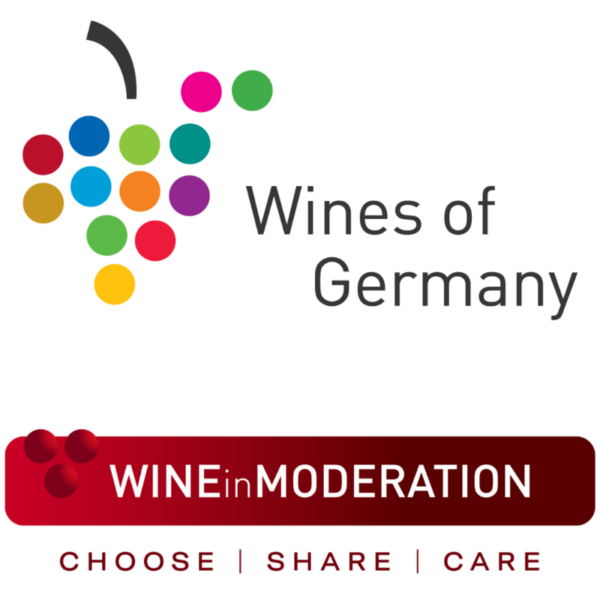Every month, ‘Whose Wine is it Anyway?’ profiles a German winemaker to give you a behind-the-vines look at the world of German wine. This month, we’re highlighting Florian Weingart of Weingut Weingart. Located in the Mittelrhein, Weingut Weingart is a family-run winery cultivating some of the best vineyards in the region.
Whose *Wine* is it Anyway? Meet Florian Weingart
Meet Florian Weingart
Estate: Weingut Weingart
Region: Mittelrhein
Village: Spay
Focus: 87% Riesling, 13% Spätburgunder
U.S. Importer: Skurnik
Background
Florian Weingart was raised in the village of Spay, surrounded by beautiful landscapes and the rich culture of winemaking just like his family before him. Since the beginning of the 18th century, the Weingarts have worked as farmers and winemakers in Spay.
Before he was born in the 1960s, Florian’s parents transitioned the family farm into a winery. Unsurprisingly, Florian’s childhood was spent around nature and winemaking, leading him to pursue a career in wine as an early teen.
Florian accepted an apprenticeship at The Geisenheim Grape Breeding Institute in 1992 and later became a viticulture engineer. To this day, Florian’s favorite part of winemaking is accompanying grapes from the vineyard all the way to the glass. The complexity and unpredictability of the winemaking process, along with the individuality of each vintage, harvest and variety, keeps Florian coming back for more.
Today, Florian and his wife, Ulrike, own and operate Weingut Weingart, which they call a representation of sustainable living, work ethic, and authentic wines. The couple made a conscious decision to keep the business small, family-owned, and focused on quality. That’s why you can find Florian present at all stages in the vineyard and the cellar, working alongside the winery’s single employee and few seasonal workers.
Vineyards
The Weingart’s home region of the Mittelrhein offers dramatic views of steep slate cliffs crowned with medieval castles and riverbanks adorned with charming villages. The Upper Middle Rhine Valley was named a UNESCO World Heritage site in 2002, and it’s often referred to as “the Rhine Gorge.”
Today, Weingut Weingart owns 4.5 hectares of vineyards in Spay and the neighboring town of Boppard. These hectares are divided between 3 sites on the Bopparder Hamm in the Middle Rhine valley: Ohlenberg, Feuerlay, and Engelstein. Each site features slate soil layered with rich loess and volcanic ash from the eruption of the Eifel Mountains over 10,000 years ago.
The Engelstein vineyard sits on old terraces in the east corner of Bopparder Hamm, where Florian has converted his vines to post-training, a time-consuming technique most common on the steep slopes in the Mosel. The winery’s Feuerlay site is known for its layers of weathered slate, loess, and quartzite, while the Ohlenberg plot touts layers of shale and sandstone rich with quartz.
Weingut Weingart’s vineyards are dedicated to Riesling, apart from 0.75 hectares of Pinot Noir. Florian also farms 1.4 hectares of Riesling grapes from a friend and part-time winemaker in Bacharach. The combination of hand-picked, high-quality grapes, top vineyard sites and soil, and a low yield per hectare make Weingut Weingart’s wines unique.
Wines
Once the grapes are selectively harvested across the winery’s vineyard sites, they are brought to Weingut Weingart’s underground wine cellar. The cellar was built to use as little energy as possible while offering the optimal climate for wine storage, thanks to its location. From there, the grapes are processed through a gravity-flow wine system, crushed and then pressed on a modern bladder press. Then, fermentation takes place in stainless steel casks and acacia wood barrels before being bottled.
Weingut Weingart encapsulates the idea of a traditional family-operated winery, producing around 36,000-48,000 bottles each year. Because every vintage is different and ideal ripeness and sweetness levels vary, he believes that nature should form each year’s vintage and eschews the idea of a house style.
Florian recommends that readers taste the fruit, elegance, lightness, and acidity of his winery’s Riesling first, beginning with a Halbtrocken or Feinherb. Whether Qualitätswein, Kabinett or Spätlese, Weingut Weingart’s Riesling wines are a balance of acidity and sweetness, showcasing the unique traits of the Mittelrhein region.
Spätlese is the central idea of German wine culture.
— Florian Weingart
Sustainable Sips
As well as winemaking, Florian, Ulrike and their three daughters are dedicated to sustainability in both the household and family winery. Sustainability is top of mind for the Weingart family, from their vegan diets to composting toilets to regenerative heating. The winery uses its own spring water, which is cleaned on the property and then stored and reused for irrigation in the vineyards.
The Weingart family also takes care of several hectares of traditional cultural heritage land around the winery by planting fruit trees, mowing the meadows and inviting cows and sheep from local farms onto their property to graze. This is one way that Florian and his family compensate for the monoculture that often plagues vineyards.
Explore more
Visit Weingut Weingart’s website
Stay tuned for next month’s winemaker spotlight! Follow us on Instagram, Twitter, and Facebook at @GermanWineUSA and subscribe to our newsletter to stay up to date on all things German Wine in the U.S.
